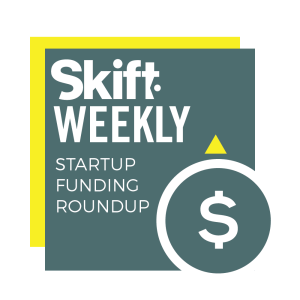Lilium Raises $240 Million for Flying Taxis: Travel Startup Funding This Week

Skift Take

Travel Startup Funding This Week
Each week we round up travel startups that have recently received or announced funding. Please email Travel Tech Reporter Justin Dawes at jd@skift.com if you have funding news.This week, travel startups announced more than $240 million in funding.
Travel startups need help due to the economic impact of coronavirus. Seed-stage funding has been hit the most worldwide, dropping 22 percent since January, estimated CB Insights, a market intelligence company.
Growth-stage startups are also struggling. On March 17, Skift interviewed travel startup investors about their areas of concern, and investors mentioned short-term rental startups and corporate travel startups as yellow-flag categories.
This week, alternative accommodation brand Sonder laid off and furloughed about 400 people, or a third of its staff, The Information reported, while rival Lyric has also made deep cuts. Corporate-travel startup TripActions laid off nearly 300 employees to save cash.
Some help for travel startups may be on the way. This week, France became the first Western country to aid struggling startups. The French ministry of state for digital affairs and investment bank Bpifrance announced $4.3 billion (€4 billion) in refinancing help for startups needing bridge loans to maintain liquidity.
Meanwhile, the German government offered help to startups that have valuations of more than $54 million (€50 million).
Here's this week's funding news:
>>Lilium, a startup building an air taxi service, has raised $240 million in additional funding in what was nominally a Series C round.
Tencent led the round. Atomico, Freigeist, and LGT also participated. The Munich-based startup has now raised more than $340 million to date.
Get the Latest on Coronavirus and the Travel Industry on Skift's Liveblog
Lilium is creating so-called vertical take-off and landing (VTOL) aircraft. Each vehicle seats five and promises be able to fly 186 miles in an hour.
The startup hopes to open a full-scale factory by 2025. After that, it wants to run a branded fleet of air taxis.
Rivals to Lilium include Volocopter, a German firm which has raised $89.7 million (€88.1 million) in funding to date and which wants to launch its VoloCity air taxis commercially by 2023. Other companies working on similar products include Uber, Boeing, Airbus, NEC, and Toyota. Plus, Austria's FACC is working to produce hundreds of passenger drones for Chinese partner EHang by the end of this year.
Skift Cheat Sheet:
We define a startup as a company formed to test and build a repeatable and scalable business model. Few companies meet that definition. The rare ones that do often attract venture capital. Their funding rounds come in waves.
Seed capital is money used to start a business, often led by angel investors and friends or family.
Series A financing is typically drawn from venture capitalists. The round aims to help a startup's founders make sure that their product is something that customers truly want to buy.
Series B financing is mainly about venture capitalist firms helping a company grow faster. These fundraising rounds can assist in recruiting skilled workers and developing cost-effective marketing.
Series C financing is ordinarily about helping a company expand, such as through acquisitions. In addition to VCs, hedge funds, investment banks, and private equity firms often participate.
Series D, E and beyond These mainly mature businesses and the funding round may help a company prepare to go public or be acquired. A variety of types of private investors might participate.





